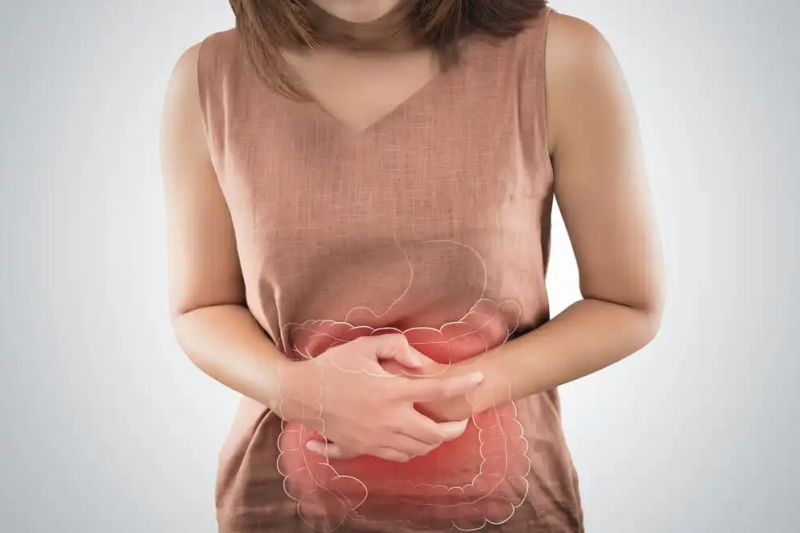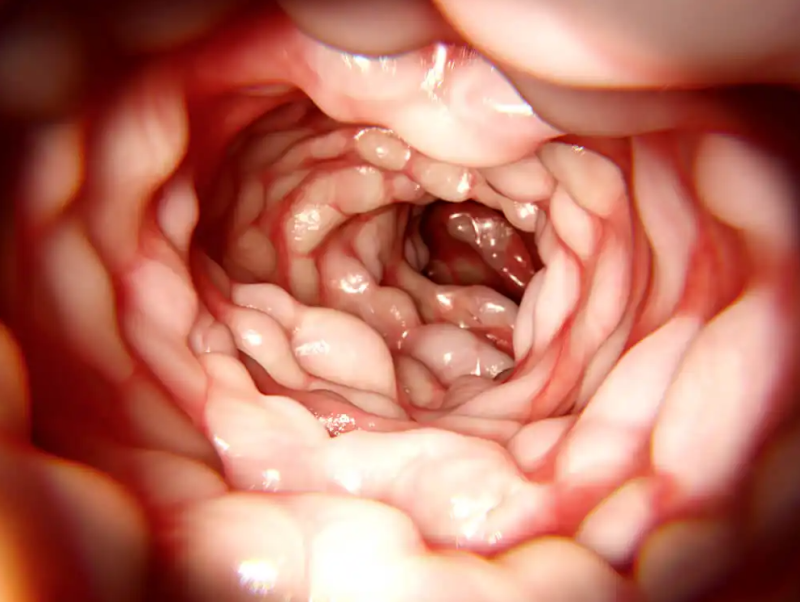
According to this study by the University of Costa Rica, the digestive system has several membranes throughout the intestine in charge of secreting mucus to keep the intestines fully lubricated and make all food easier to transit. However, the presence of mucus in the stool is not a normal condition.
With the mucus in normal quantities, the proper functioning of the stomach and the constant absorption of nutrients and waste through the feces are achieved.
But everything changes when the mucus in the feces is more abundant than usual and becomes more noticeable since you may be facing an infectious process or another condition that means something is wrong within your digestive system.
Contents
What can cause the presence of abundant mucus in the feces?
- Amebiasis, as stated in this study by the University of Zulia in Venezuela.
- Ulcerative colitis, as suggested by this study by the Ramón y Cajal University Clinical Hospital in Madrid.
- Colonic polyps, as stated in the American Society of Colon and Rectal Surgeons study.
- Diverticulitis. This research confirms this carried out by the Ramón y Cajal University Hospital in Madrid.
Know the diseases that cause mucus in the feces
1. Ulcerative colitis

Ulcerative colitis is an inflammatory disease that affects millions of people worldwide. The most frequently affected portion is the rectum and anus. In this situation, the entire mucosa of the colon becomes progressively inflamed until it develops ulcers.
This occurs due to the constant irritation that the intestine presents without the protection of acids, leading to discomfort and characteristic symptoms such as abundant mucus in the feces. Other symptoms that should be taken into account are the following:
- Diarrhea, sometimes with blood and pus.
- Weightloss.
- Pain in the rectum and abdomen.
- Weightloss.
- Fever.
- Fatigue.
2. Gastrointestinal infections
Many bacteria are found under typical conditions in the colon and in different parts of the intestine, helping digestion.
However, when the balance of bacteria gets out of control, they can lead to infections with symptoms accompanying diarrhea and others, such as mucus in the stool or, in some cases, blood streaks requiring treatment—Immediate doctor.
For its part, the action of some parasites, such as Entamoeba histolytica and Giardia lamblia, may be responsible for the appearance of mucus in the feces. A study by La Salle University in Mexico showed that these parasites irritate the intestine, increasing mucus production.
Viruses can also cause mucus in the stool, especially in young children. According to research, the most frequent etiological agent of this type of infection in children is rotavirus, which can cause the expulsion of mucus in up to 27% of cases,
3. Bowel obstruction
 When sufficient water is not ingested, an uncontrolled secretion of gastric hormones can occur over time, as well as the possibility of fungal infections.
When sufficient water is not ingested, an uncontrolled secretion of gastric hormones can occur over time, as well as the possibility of fungal infections.
The consequence is frequent periods of constipation, which obstruct intestinal transit from the constant production of mucus in the feces, often requiring surgical intervention.
This study by the Alamedilla Health Center in Salamanca (Spain) also states that it could be an alarm signal concerning the appearance of other conditions, such as Crohn’s disease. The symptoms that suggest the presence of an intestinal obstruction are the following:
- The sudden absence of stool.
- The constant urge to defecate.
- Abdominal distension .
- Vomiting
- gases.
- Swelling of the belly.
4. Diverticulitis

Inside the colon are small anatomical pockets known as diverticula, which appear due to a structural weakness. When inflamed, they cause an irritative condition called diverticulitis, which eventually causes the appearance of mucus in the feces and other symptoms that accompany it, often abdominal pain and the formation of blood in the feces.
5. Polyps in the colon
As polyps are present in any area of the colon, the irritation they cause simultaneously injures the mucus-secreting membranes, causing them to be excreted directly with the feces and, in turn, indicates that a colonic cyst may be behind the mucus, With consequences.
Unfortunately, colon polyps often cause very non-specific symptoms, making diagnosis difficult. Among the main clinical manifestations, the following stand out:
- Rectal bleeding.
- Changes in the general appearance of the stool.
- Periods of diarrhea or constipation.
- Abdominal pain.
Diagnosing and treating the polyp in time is the only way to prevent its evolution. Colon polyps can become malignant over time and develop into colorectal cancer. Therefore, it is always convenient to consult with the doctor in the presence of mucus in the feces, together with the symptoms described.
6. Crohn’s disease
 This, being a chronic disease, means that you will always suffer from its symptoms since this is of immunological cause, and only some of its clinical manifestations can be alleviated without being able to give it a definitive cure.
This, being a chronic disease, means that you will always suffer from its symptoms since this is of immunological cause, and only some of its clinical manifestations can be alleviated without being able to give it a definitive cure.
One of the symptoms of Crohn’s disease encompasses mucus in the stool due to frequent inflammation of the intestine and the secretory glands, requiring palliative treatment. Other common symptoms of the condition include:
- Abdominal pain.
- Fever.
- Fatigue.
- Lack of appetite and weight loss.
- Watery diarrhea that may have blood in it.
7. Food allergy
A widespread pathology that can generate the presence of mucus in the feces is a food allergy. Many people are intolerant to certain foods, so their intake can cause the appearance of any of the following symptoms :
- Constipation or diarrhea.
- rashes
- Abdominal distension.
8. Anal fissures
An anal fissure is a small tear in the skin and lining of the anus. They can result from chronic constipation, passing large stools, and anal sex. This condition conditions the appearance of mucus and blood in the feces. Other common symptoms are:
- Pain during defecation.
- Discomfort and itching in the anal area.
- The sensation of rectal occupation or tenesmus.
- Small lump near the anal sphincter.
This type of injury generally resolves spontaneously after a couple of days. Studies confirm that first-line treatment is based on hygienic measures, including sitz baths, washing with neutral soaps, topical anesthetics, and corticosteroids to relieve pain.
9. Irritable bowel syndrome
People with irritable bowel syndrome (IBS) are prone to intermittent mucus in their stools. This symptom is more common in diarrhea-predominant IBS. Similarly, the following manifestations are common:
- abdominal cramps
- Distension and abdominal swelling.
- Change in the frequency and form of bowel movements.
Research states that treatment includes lifestyle modifications and dietary changes, as well as the use of probiotics and drug therapy aimed at improving bowel motility and tenderness. Prompt treatment decreases the risk of complications and improves the quality of life.
10. Cystic fibrosis
It is a genetic pathology that makes mucus, gastric juices, and sweat much thicker and stickier. Instead of acting as lubricants, these secretions clog the different ducts of the body.
Digestive symptoms of the disease include the presence of mucus in the feces, as well as the following clinical manifestations:
- Greasy and smelly stools.
- little weight gain
- Stunted growth.
- Intestinal obstruction in newborns.
- Chronic constipation.
Unfortunately, there is no specific cure for cystic fibrosis. The idea is to consult with the specialist to initiate the appropriate measures and thus be able to prevent complications.
11. Malabsorption problems
Malabsorption problems such as lactose intolerance and celiac disease can cause mucus in the stool. The best way to avoid the symptoms is not to consume the foods that trigger them and to maintain adequate medical control.
When should I worry?
A small amount of mucus in the stool is typical, especially in people with constipation. The rectum is a susceptible area, which can suffer minor injuries that explain this clinical manifestation.
However, if the mucus becomes abundant, appears more frequently, and is accompanied by any symptoms described, you should seek medical attention as soon as possible. Many of the conditions mentioned can harm health when not treated properly.
A symptom with multiple causes
After knowing many of the causes of mucus in the stool, it will be much easier to determine what yours has been if you are now suffering from it.
In the same way, if you know the reason, you can decide what type of treatment guided by your doctor will go best with the condition you are facing so that you maintain the health of your large intestine at its maximum capacity and without any alterations in between.